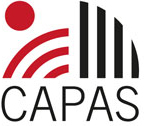About the Journal
Apocalyptica is an interdisciplinary, international, double-blind peer-reviewed academic journal published by the Käte Hamburger Centre for Apocalyptic and Post-Apocalyptic Studies (CAPAS) at Heidelberg University. The journal publishes thought-provoking voices and diverse perspectives invested in the end of worlds. Apocalyptica aims to be publish two issues per year.
Each issue contains approximately 10-12 articles of 8,000 – 9,000 words. Publications include a combination of open-call submissions and contributions by our CAPAS fellows.
Mission Statement
As anthropogenic climate change, increasingly polarised politics, and the COVID-19 pandemic anticipate the end of worlds, the idea of the apocalypse is gaining traction in popular and scholarly discourses. The notion of a doomed world saturates discussions on politics, economics, and technology, it is also prevalent in film, art, media, and literature. Crucially, apocalypses and their imagined aftermaths produce emancipatory and creative potentials that engage the possibility of plural worlds, embodied futurities, and non-linear temporalities. These possibilities of the apocalypse are increasingly reflected in the invocation of haunting sensibilities, experimental imaginaries or lived experience that employ the un/making of worlds.
Apocalyptica explores the many sides of apocalyptic thinking in order to investigate an archive of the apocalyptic imaginary and to explore experiences of the apocalypse and post-apocalypse as they unsettle the past, present, and future.
We are seeking submissions from a broad range of fields in order to champion the potential of critical thinking and cultural analysis in the humanities, social-, and cultural science as an imaginative and (potentially) transformative force. We also draw on the environmental and natural sciences, where appropriate. Our aim is to encourage the production of transdisciplinary knowledge and debate on the apocalypse as a figure of thought, a discourse tradition, a concrete experience, and a historical phenomenon.
Peer Review
Apocalyptica is a double-blind peer-reviewed journal with a focus on proper academic practices and transparency. To maintain the quality of all publications, the journal ensures that all submissions undergo a rigorous double-blind peer review. All submissions will be read by the editors for initial evaluation before they are sent to two external reviewers, who will provide reports on the article. Authors may be asked to revise their work in response to the reviews. All final decisions about the work’s publication are made by the editors.
Ethical Guidelines
The editors of journals published by Apocalyptica, in conjunction with Heidelberg University Press, provide the following set of guidelines, which are laid out in the following pdf.
The ethical guidelines were developed to ensure good academic and scientific practices and are of importance for all persons engaged in the publication including the editors, authors, and external manuscript reviewers. To ensure they remain up to date, precise, and clear, the ethical guidelines put forth here are reviewed regularly.
Publisher and Ownership
The journal is published by Heidelberg University Publishing and owned by the Käte Hamburger Centre for Apocalyptic and Post-Apocalyptic Studies. Authors retain the rights to their work published with Apocalyptica. They allow Apocalyptica to make available the article in perpertuity under the Creative Commons international license CC BY-NC-ND-4.0. After publication in Apocalyptica, authors may deposit their article in open-access repositories. They also may republish their content, buy they must notify Apocalyptica before its republication and acknowledge Apocalyptica in the new source.







